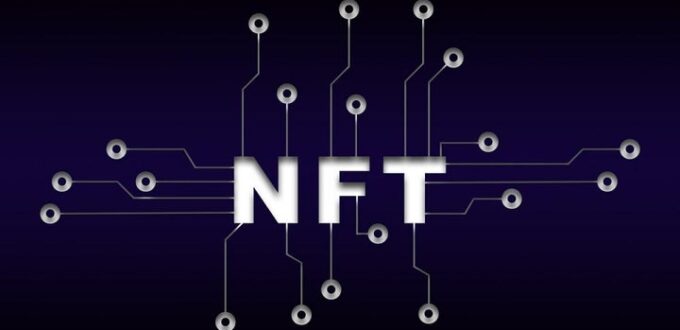By Ryan Wilkinson
Over this year, we’ve witnessed a massive growth of non-fungible tokens (NFTs). With NFT projects ranging from Tweets to people’s sequenced DNA, one of the key traits of non-fungible tokens is flexibility – and this is also one of the main reasons why NFTs are being explored by several notable global industries such as fine art, music, and real estate.
Trending, Still not Mainstream
The NFT industry has grown rapidly, but it has yet to gain traction in the mainstream. Why? First, regardless of the growing adoption of cryptocurrency and blockchain, the general public does not understand them or see the benefits they offer. Besides that, the anonymity that cryptocurrencies provide is often confused with a lack of a trusted intermediary.
Second, NFTs are primarily art-related and don’t appeal to a large portion of the population. Third, the lack of fiat on-ramps also hinders adoption, but we’re seeing some progress here: a number of platforms in the world of sports, comic books, and trading cards have already incorporated this feature.
Fourth, buyers aren’t the only ones dealing with the growing pains of NFTs. Creators are yet to understand the new opportunities they offer – which can be achieved through educating them on the benefits of leveraging NFTs. The good news is that there is a proverbial light at the end of the tunnel: several industries are driving their mass adoption, but perhaps none more than the wide world of sports.
Sports: powering innovation
Sports exist in virtually every corner of the world. Athletes and sports clubs have massive bases of fans who love to consume anything that has to do with their heroes – especially in the post-pandemic space, which has put us within a mouse click of each other yet so far.
There are few things sports fans love more than competition and rivalries, and NFTs can offer both. Sports collectibles have been a huge business for decades and now sports collectors have a new and exciting avenue to explore, one that can let them take an active part in what’s going on and maybe even profit in the long run.
NFTs offer numerous benefits for the athletes: younger ones get a way to make extra money, while world-renowned veterans can create new VIP experiences for their following. As far as fans are concerned, they get an opportunity to invest in cryptocurrencies and support the teams and players they love, while becoming a part of their heroes’ journey. NFT holders get access both to virtual and real-life experiences like playing 1-on-1 with their favorite player or winning VIP tickets to events and games. Some fan tokens are a bit different from NFTs, but the two work very well in tandem. For example, fan tokens can be used as votes on team decisions, while some even grant the holder partial ownership of a team.
NFT platforms: bringing in real utility
All of the unique features that sports NFTs provide have contributed to the explosion of their popularity. Still, there are several nagging issues many would-be NFT buyers are faced with.
Perhaps the most significant of these is the notion that NFTs serve no purpose in the real world. However, NFTs from athletes, teams, and leagues offer a lot of utility in the real world. As mentioned in the paragraphs above, non-fungible tokens give fans exclusive access to experiences and perks. Another way that sports-centric NFTs are aiding in the mainstream adoption of tokens is by developing smart tokenomics. The high level of competition pushes platforms to create unique tokenomics and experiences that hold real-world value.
Gamification is another area in which sports-based NFTs shine. Introducing simple models helps make the idea of a long-term static investment more appealing – and, frankly, less boring – while lowering the entry barrier for first-time NFT investors.
While we are still in the early days of NFT adoption, the wide world of sports has already left its mark on the industry. Sports NFTs appeal to a wider audience than the traditional avatar-based NFTs or digital art, which gives them the power to drive adoption and push NFTs from a niche market into the mainstream.
Author Bio:
Ryan Wilkinson is the head of product at Blockasset, a Solana-based athlete-verified platform that uses decentralized technologies to connect athletes with their fans.

No Comments Yet